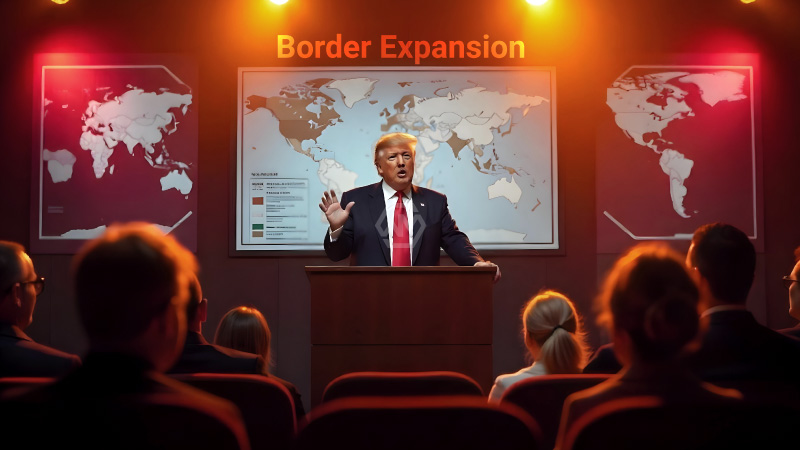- Trump‘s rhetoric about U.S. territorial expansion into Greenland, Canada, and Panama raises alarm in Europe.
- European leaders respond cautiously, prioritizing cooperation over confrontation.
- Analysts warn that such statements could affect U.S.-European relations going forward.
Donald Trump’s recent comments about extending U.S. territorial boundaries to include Greenland, parts of Canada, and the Panama Canal have sparked concerns in Europe.
hile the rhetoric echoes expansionist ideas that worry many, European officials have opted for a measured approach, avoiding any drastic diplomatic actions.
Trump’s Border Redrawing Talk Causes Unease Among European Leaders
European leaders, while acknowledging the inflammatory nature of Trump’s words, are taking a “wait-and-see” stance. They recognize that Trump’s unpredictable style often results in words not aligning with actions, which tempers their reaction. However, analysts note that this rhetoric, if repeated, could create friction in U.S.-European relations, especially in sensitive diplomatic areas like security and international borders.
Despite the alarm caused by his words, European officials have largely refrained from responding aggressively. Many are taking a “nothing to see here” approach, considering Trump’s statements as part of his usual unpredictability. This response reflects a preference for avoiding heightened tensions while still acknowledging the need for a clear stance on international borders.
At the same time, analysts are warning that even casual remarks about border expansion could damage longstanding U.S.-European relations. The diplomatic ramifications of such rhetoric are significant, especially as European leaders prioritize cooperation in areas like defense and trade, where U.S. involvement is key. Any disruption in these partnerships could have far-reaching consequences.
While Europe’s diplomatic response remains cautious, the potential for long-term strain is evident. Trump’s words may not directly lead to action, but they contribute to a broader climate of uncertainty that could impact European perspectives on U.S. leadership in global affairs.
The rhetoric surrounding Trump’s border expansion remarks signals potential turbulence in transatlantic relations, but Europe’s measured response suggests they are waiting for concrete actions before reacting.
“Borders should not be redrawn by force” – highlighting the tension between Trump’s expansionist rhetoric and Europe’s commitment to respecting international boundaries.



